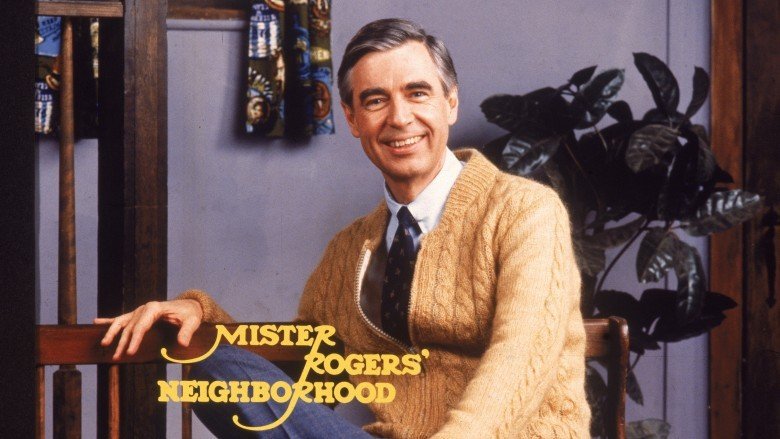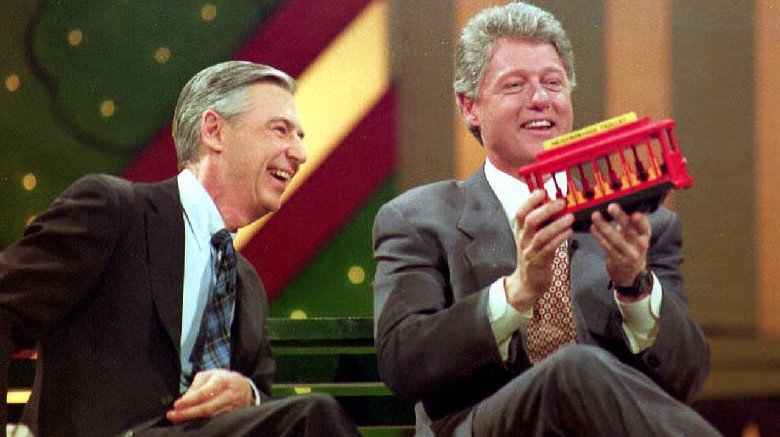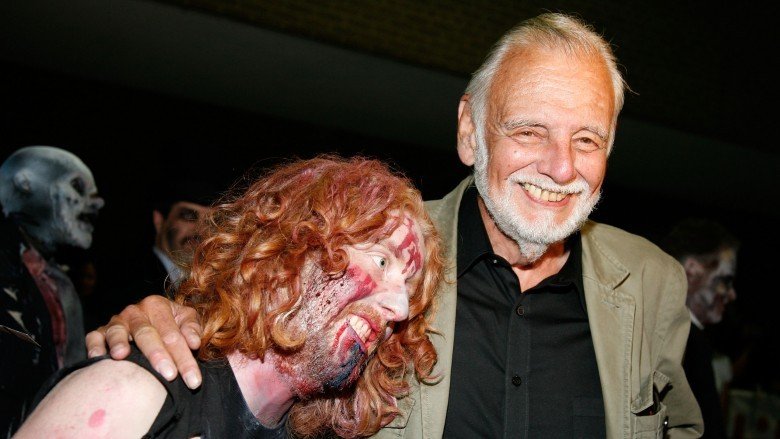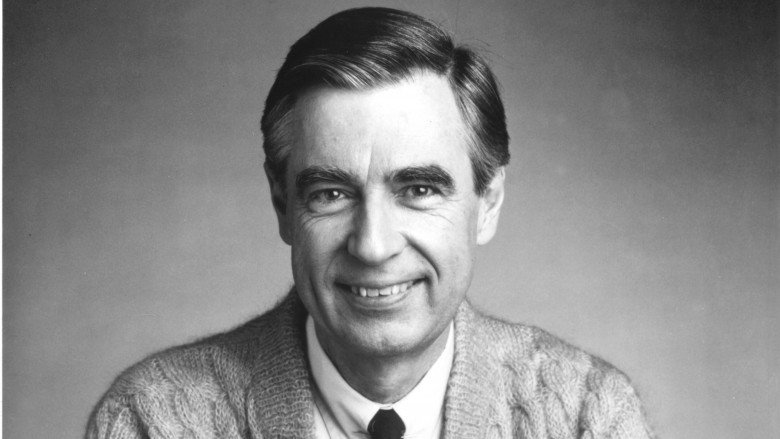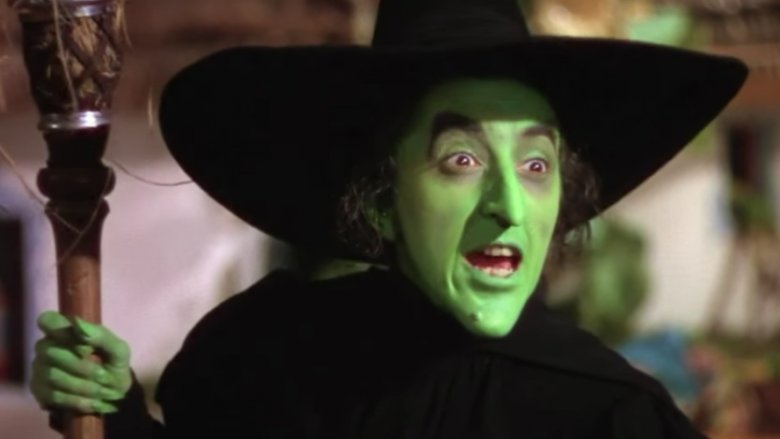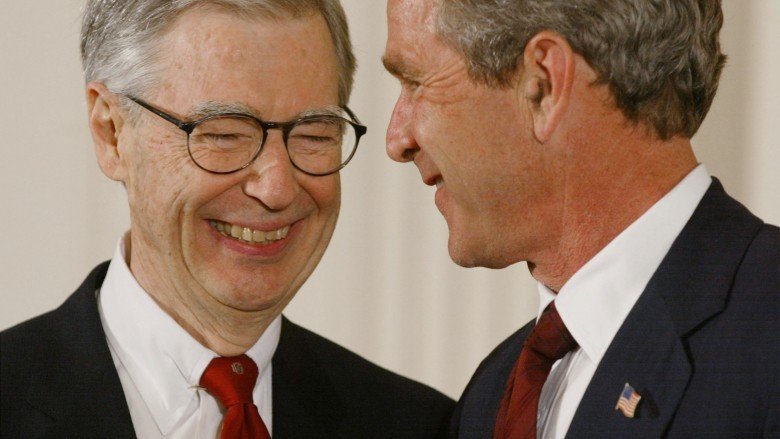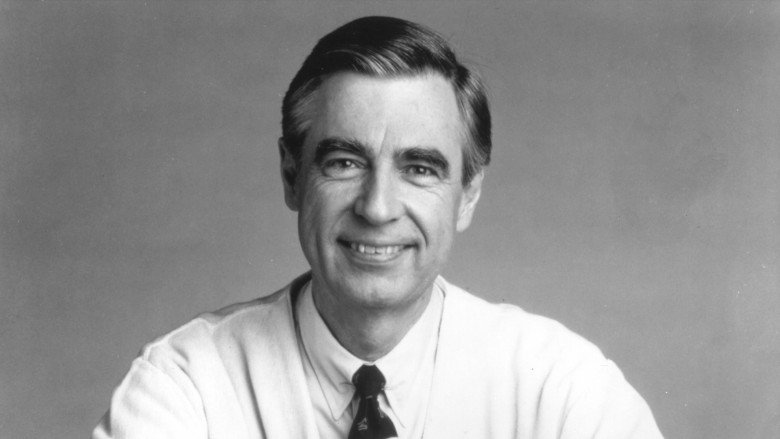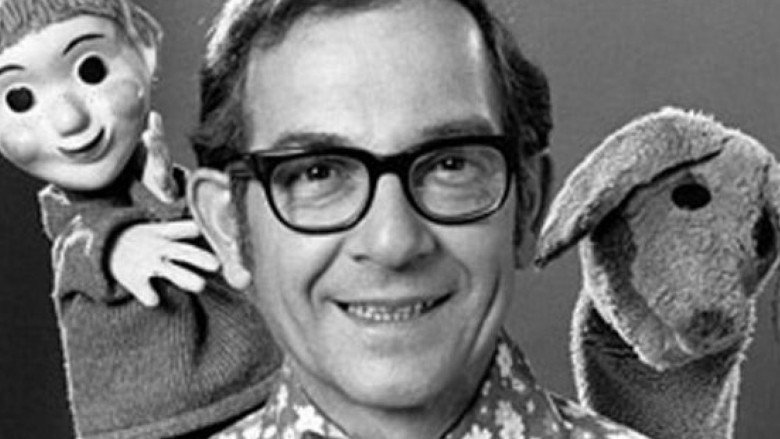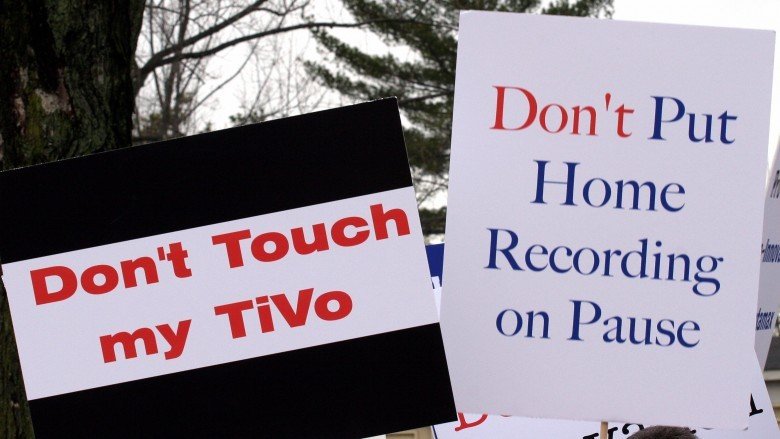How Mister Rogers Was Even More Amazing Than We Knew
There are few Americans in history as iconic as Fred McFeely Rogers. It's so easy to think of this man and dismiss him as some one-note, puritanical children's television host with the greatest middle name ever, but in reality, he was so much more awesome than that. He was a trailblazing pioneer who, rather than just sit and whine about the world, made it his mission in life to go out and change it. He was living proof that strength is not in how loud we can scream or how hard we can hit but, rather, how committed we are to making things better.
He was really difficult to interview
As a man billing himself as everyone's neighbor, Mister Rogers was in high demand as an interview subject for much of his career. The problem was that he was well-known as one of the toughest interviews in television. Why? He was just too gosh-darned nice.
The friendly and curious demeanor we all saw on the show was in no way an act. Mister Rogers was just as neighborly and kind offscreen as he was on it. This made him nearly impossible to interview, as he would often steer interviews off course to make an earnest effort to befriend anyone who talked to him. This made it exceptionally difficult to ever get Rogers to open up and talk about himself because he was always way more interested in how his interviewer was doing.
The effect Rogers had on those who interviewed him was profound. Rogers would end interviews by telling people with the utmost sincerity that he'd enjoyed meeting them before giving them a little photo album of the time they'd literally just spent together. Rogers was even known to call up interviewers he'd befriended for years after the fact just to see how they were doing. So yeah, you could interview Mister Rogers — you just had to be ready to welcome another parent into your life.
He was really particular about his weight because...
Mister Rogers was a man who took exceptional care of himself. He didn't smoke or drink and adhered to a strict vegetarian diet, both for health reasons and because he didn't "want to eat anything that has a mother." In addition to this, Rogers had a fixed regimen of exercise that would be punishing for a young man, let alone a guy in his 60s and 70s, waking up everyday at 5 a.m. to swim for several hours before praying and starting work.
One of the reasons Rogers took such good care of himself is because he had a morning ritual of sorts that involved looking at his bathroom scales, seeing the number 143, and smiling to himself. Mister Rogers thought 143 was very special because he found a special pattern in it.
As he put it: "It takes one letter to say 'I,' and four letters to say 'love,' and three letters to say 'you.' One hundred and forty-three."
The story goes that Mister Rogers woke up one morning, saw that his scales registered his weight as 143 pounds and at that moment decided he'd do everything in his power to be reminded of love every morning. He apparently succeeded: the Fred Rogers Center says he kept his weight right on the love-money for his last 30 years gracing our planet.
He (apparently) responded to every piece of fan mail he ever received
Mister Rogers got a lot of fan mail at the height of his fame, and, like Ringo Starr in that one episode of The Simpsons, he wanted to answer it all. Now, it's often claimed that Mister Rogers answered every piece of fan mail he ever received, which is a comically outrageous claim. Mister Rogers must have received tens of thousands, if not hundreds of thousands of letters throughout his lifetime. How could one man possibly answer all that mail? Surely he had other things to do, like washing his extensive sweater collection or making almost 900 episodes of a beloved children's television show.
But here's the thing, it seems that Mister Rogers may have done just that. We couldn't find even a single anecdotal story of someone claiming to have written to Rogers and not getting a reply. In fact, it seems that Mister Rogers possibly did answer every letter he ever got in the mail from a fan. Now here's the really crazy part, it's also noted that Rogers' responses to his fans, far from being generic niceties or canned responses as you'd expect from a lesser human, were deeply personal in nature. Rogers would read every letter and email he got intently, writing back to let each fan know know how much their message meant to him because they sent it, going out of his way to make sure they knew he was both proud of them and happy to call them his friend.
While it's probably impossible to prove whether Mister Rogers actually did answer every piece of fan mail he received, it's entirely fair to say that if anyone could do it, it'd be Fred.
He inadvertently made bold racial statements just by being nice
Francois Clemmons was the kindly black man who played the resident beat cop in Mister Rogers' Neighborhood. According to Clemmons he was initially hesitant to take on the role after being approached by Rogers after the latter had heard his impressive vocal range while singing in church, stating: "I grew up in the ghetto. I did not have a positive opinion of police officers. ... I really had a hard time putting myself in that role. So I was not excited about being Officer Clemmons at all."
Rogers persisted, and Clemmons eventually relented and accepted his offer, becoming one of the first African-American men in television history to have a recurring role on a children's television show.. Rogers knew exactly the statement he was making by having a black man in position of power and authority on a show airing in the '60s, treating Clemmons both on and off set the same way he did everyone else: like a friend.
Perhaps the boldest racial statement made by Rogers though was when, in one early episode, he invited Clemmons to soak his feet in his pool alongside his own. This may not sound like a big deal today, but this episode aired in 1969, just five years after the passing of the Civil Rights Act and a time when segregated swimming pools were still very much a thing. Clemmons was moved by the gesture and the symbolism of showing a black man and a white man as equals in a time when such an idea was considered radical to a significant percentage of the population.
Rogers and Clemmons remained friends for life, and Rogers even went as far as revisiting the scene in Clemmons' last episode in 1993. Upon being asked by Clemmons during the episode what he was thinking about all those years ago as they were soaking their feet, Rogers smiled and said, "I was just thinking of all the different ways people say I love you".
He loved zombie movies and helped George A. Romero get his first filming gig
When you think of Mister Rogers, you might imagine him wearing one of his favorite cardigans on a cozy couch somewhere reading a book. While that might be a fair and realistic scenario, you'd also be right if you pictured him hunkering down to enjoy an amazing zombie flick. That's right, folks — Fred Rogers got down with the undead, and he helped you do the same.
You see, when George A. Romero, the king of zombie films, was just starting out, he had a hard time finding someone willing to give him a chance. That is, of course, until he met Mister Rogers. Recognizing that this aspiring filmmaker needed some camera experience, he offered him a job on the Mister Rogers' Neighborhood crew (along with other notable names such as Michael Keaton!).
It's one thing to give someone a job, but did Mister Rogers, the ordained minister, the nicest man not named Bob Ross ever, actually watch any of Romero's gore-work? The answer is, obviously ... yes! He watched both Night of the Living Dead and Dawn of the Dead, actually, and apparently loved them. When Romero asked what Rogers thought of his work, he reportedly said: "It's a lot of fun, George." He did, after all, watch more than one movie, so he must have liked them! Though he did draw the line at letting Romero cast Lady Aberlin in the flicks, since having to explain to the little children why the good Lady just got eaten by zombies might've proven a little difficult.
He didn't shy away from the dark stuff
It's easy to look at zombie movies or violent shows and see the darkness being depicted, but Fred Rogers believed the pain that exists in our lives every day is even more difficult to process. For this reason, he kept it real on his show, despite how much of his target audience couldn't even spell "real." In fact, he believed that it was even more important to equip them early on with the tools they needed to navigate life's most treacherous moments.
If you watched his show, you might recall that he covered a wide-range of topics, and many of them involved things that even adults struggle to confront. In one episode of Neighborhood, the prince has gone missing, and people correctly assume that it's because he can't deal with his parents' constant fighting at home. In a story arc that lasts several days, people search for him and, when he is found, a classmate tells him that he had been scared the prince was dead.
You know why that's important, that the prince disappeared because of real reasons and not "evil dragon" ones? Because kids at home probably wondered the same thing when Mister Rogers and his friends couldn't find the prince. Instead of skirting around the issue, he faced it head on, as he did with many issues on his program, showing children that they can learn to cope with difficult emotions like fear, shame, and anger. He understood that kids might be innocent, but they still needed to understand how to live in the real world. He taught them to be open, brave, and resilient while owning their feelings, which was something they could carry with them for the rest of their lives. It wasn't all sweaters and fish-feeding, you know.
He invited the Wicked Witch onto his show just so kids wouldn't be scared of her
Mister Rogers wrote or had a hand in writing nearly every one of the 895 episodes of Mister Rogers' Neighborhood he was in. As it would be impossible for even a man as dedicated as Rogers to maintain that kind of creative output, many episodes were inspired by prompts or ideas from friends, fans, or sometimes simply things Rogers observed during his day-to-day habit of being the nicest man in the entire world.
One of the more adorable examples of this is the time David Newell (who played Mr. McFeely on the show as well as acting as an associate producer) mentioned that a lot of children were terrified of Margaret Hamilton, specifically her character The Wicked Witch of the West. Newell proposed maybe bringing her onto the show so kids could see she wasn't an evil witch who'd melt if you spilled a tumbler of water on her.
Rogers loved the idea and immediately reached out to Hamilton, asking if she'd like to appear on his show to talk about being misunderstood and to explain to children that the Wicked Witch was just a character she played in a movie to his younger fans. Hamilton accepted the offer without a moment's hesitation and even donned her old costume one last time because who wouldn't want to hang out with Mister Rogers while dressed as a cool witch?
There's an asteroid named after him
When Fred Rogers died at age 74 from stomach cancer, generations of fans mourned him. Undoubtedly, many a person has glanced up at the sky wondering if he's watching over us all, as we continue to work our way through difficult challenges and emotions. Incredibly, the fine people who name celestial bodies took the guesswork out of it, and found a way to ensure us that yep, he's out there. They did so by naming an asteroid in his memory, which is just plain awesome, even if this particular asteroid doesn't come near Earth all that much.
Discovered on March 21, 1993, the Mars-crossing asteroid now known as 26858 Misterrogers includes the following passage in its online description: "Fred McFeely Rogers (1928-2003) was a passionate advocate for children who taught that everyone is unique and deserving of love and respect 'just the way you are.' For more than 30 years he used his public television program Mister Rogers' Neighborhood as a vehicle of service to the youngest members of the human family." That's just one more reason why Mister Rogers is out of this world!
He earned the Presidential Medal of Freedom
In addition to winning a special place in his viewers' hearts, Fred Rogers was honored with many awards, and was even inducted into the Television Hall of Fame in 1999. He absolutely deserved this recognition, for his years of hard work and dedication to the well-being of children everywhere.
One moment of gratitude, however, must have been particularly meaningful for him. In 2002, just a year before his death, Rogers was presented the Presidential Medal of Freedom by President George W. Bush. On the archived White House website, it recognizes Mister Rogers' Neighborhood as the "longest running program in the history of public broadcasting" and praises Fred Rogers for encouraging "the healthy emotional growth of children and their families." When you earn the highest honor any US civilian can receive because of a 30-minute children's show, you know you did the 30-minute children's show right.
He quit NBC to pioneer better children's television
After becoming an ordained minister, Rogers gave up on living his life for the church and pursued a career in the arts. He was hired to make theme music for several shows on NBC, and probably would've been very comfortable living the rest of his life on that salary. Problem is, something about that job didn't feel right to him, namely how he felt their reliance on advertisements and merchandising influenced the kind of programming they produced.
Worse still, he felt that the things he saw on television were contrary to his personal convictions. He once said, "I saw people throwing pies at each other's faces, and that to me was such demeaning behavior. And if there's anything that bothers me, it's one person demeaning another. That really makes me mad!" Yes, Mister Rogers was capable of getting angry. The impossible is possible.
Fortunately, he decided to use that anger as fuel to make some big changes in TV. He left his job to focus on developing programs for children. He believed that television geared towards younger audiences should be free of advertising, while addressing real issues and helping them cope with everyday situations and emotions. He had to travel to Canada to get his first big break with the Canadian Broadcasting Corporation — there, he created Misterogers, an early version of his show. Eventually, he moved back to the States where Mister Rogers' Neighborhood debuted in 1968 and became so beloved that the final episode aired in 2001 — an incredible 33 years later. And if you ever saw a pie there, it was exclusively for eating.
He appeared before the U.S. Senate to fight for PBS funding
Back in 1969, PBS was struggling to get off the ground. The concept of public television, something free from advertising, was new, and many were skeptical about its worth. After all, why would something exist if not to sell something else? Fortunately, there were proponents willing to speak up about the merits of having a network with such a specific, humble mission — one of them happened to be Mister Rogers.
Rogers appeared before the United States Senate Subcommittee on Communications and was directly questioned by Rhode Island Senator John Pastore. Known for his gruff demeanor, the idea of convincing Pastore of the merits of children's television might have seemed impossible to some mere mortals, but Mister Rogers made it look easy. After just over six minutes, Pastore admitted that he had "goosebumps" listening to Rogers speak about his show, and readily agreed to give PBS the $20 million in funding it requested. He was so enamored with Rogers, in fact, he even requested a copy of the show, because he wanted to watch it himself. Good luck forming a political attack ad around someone who admits to watching Mister Rogers' Neighborhood in his 60s.
So what exactly did Mister Rogers say that was so compelling? Many, many things. If you haven't already seen the compelling exchange, do yourself a favor and watch it. One particularly powerful moment is when Rogers explains that drama isn't about bopping people over the head, violence, or bombarding children with animated characters, but, rather how scary it can be for a child to get a haircut. True drama, he argues, could be as simple as watching two men work out their anger in a constructive way. Yeah, if you can watch his measured, composed, but passionate plea without being affected, you might be a robot.
His understudy Ernie Coombs became Canada's beloved Mr. Dressup
In the years while he was in Canada working on Misterogers, he brought his friend and understudy, Ernie Coombs, along for the ride. Together, the pair worked on a children's series called Butternut Square from 1964-1967, and it was clear that these two men had similar philosophies and approaches to entertaining and educating children. It's no surprise, therefore, that this became something big in both of their lives.
When it was time for Rogers to return to the States to produce his own show, Coombs stayed behind and CBC created a show for him called Mr. Dressup. Incredibly, the show was also a huge success with Canadian audiences, running from 1967-1996. After becoming a citizen in 1994, Coombs was awarded the Order of Canada, and later died of a stroke in 2001. In 2012, he would receive the greatest honor anyone could ever hope to receive, living or dead: his very own Google Doodle, created to honor what would have been his 85th birthday.
His testimony was key in the time-shifting Betamax Case Supreme Court hearings
Do you love being able to record your favorite shows so you can watch them when it's convenient? If so, you may want to thank Mister Rogers for that luxury. He did, after all, play a pivotal role in making that happen.
See, back in 1984, when VCRs and Betamax broke onto the scene, one of their biggest selling features was how they allowed you to record live programming. Unfortunately, some of the networks freaked out over this novel technology, as they felt it constituted copyright infringement. The ensuing lawsuit escalated all the way to the Supreme Court of the United States — the networks were that big on making people watch shows when they wanted them to watch.
Experts and witnesses were called to testify, and among them was good ol' Fred Rogers. While huge production studios and television networks duked it out over a perceived loss of proceeds, this public TV man — who comparatively made very little — stated he had "absolutely no objection" to his viewers recording episodes of his show. That way, it might make it easier for parents to share them with their children at more convenient times. Clearly, Rogers' words made an impact (as they almost always did), and his testimony was considered to be among the most influential in the landmark decision.
Ultimately, it was determined that taped recordings fall under "fair use," and that the manufacturers of those devices could not be held liable for infringement. Many thanks to Fred, because time-shifting is amazing.
There was a petition for the Fred Rogers International Airport to exist
Fred Rogers was born just outside of Pittsburgh, Pennsylvania, and some of the local residents wanted to do something to honor the memory of a man who brought their loyal sense of community to his "neighbors" across the country (and Canada, them too).
A Change.org petition circulated in hopes of raising enough signatures to inspire the Allegheny County Airport Authority and the City of Pittsburgh to officially name their airport the Fred Rogers International Airport. The online document explained that: "Pittsburgh is still an active transit hub and, for many people, our airport will be their first experience in Pittsburgh. We wish to welcome everybody to our neighborhood." Unsurprisingly, 15,216 neighbors agreed.
However, while Bob Kerlik, vice president of medial relations for the Airport Authority, assured Pittsburgh Magazine that "Mr. Rogers is already part of the experience" of the transit hub, it wouldn't be changing its name.
